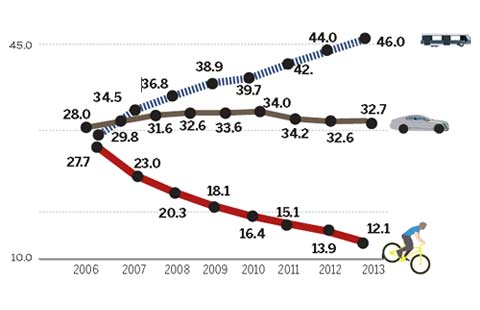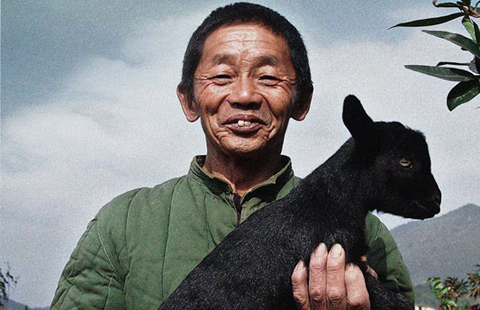TV dramas must not distort history
Updated: 2014-09-24 08:04
(China Daily)
|
|||||||||||
TV series on China's War of Resistance Against Japanese Aggression (1937-45) that have flooded television channels are being criticized for their absurdity. The producers of such programs argue that they are using imagination, which is essential in art - including performing arts of which TV series are part of - to depict history. The fact, however, remains that these producers are bombarding viewers with ridiculous story lines only to gain higher ratings, says an article on gmw.com. Excerpts:
The last time that TV dramas on the War of Resistance Against Japanese Aggression were criticized for their ridiculous plots, one program showed a Chinese soldier throwing a grenade to blow up a plane in midair while another portrayed a Chinese resistance fighter tearing apart the body of a Japanese soldier using his bare hands. Such programs were taken off the air by the State Administration of Radio Film and Television because of viewers' complaints.
Now another wave of similarly absurd dramas has hit the small screen. This year, such dramas seem to have taken different forms of oddity. The leading roles in such dramas are played mostly by pretty young male and female stars to attract a large number of young viewers, and producers take great pains to give their outfits and hairstyles the polished touch. The characters these young stars play exude too much confidence even during one of the most trying times in China's history. Needless to say, such dramas have again veered away from history.
Producers argue that anti-Japanese aggression war dramas are "popular" because they are politically correct. Besides, they easily get the approval of the censors. But to emerge successful in the highly competitive field of TV programs, producers have let their imaginations fly only to get higher audience ratings. There is thus no doubt that they have sacrificed reality and made a mockery of history.
These producers and directors should have learned a lesson from the earlier ban on such programs and realized that absurdly fictionalized versions of a very important period of China's history will only earn them the scorn of viewers.
Related Stories
TV drama 'Divorce Lawyer' gains huge success in China 2014-09-07 10:50
New reality TV series The Chair on making of two films 2014-09-04 07:37
TV series aims to 'decode' China 2014-06-18 08:06
SinoVision announces Shanghai TV Series Month 2014-04-29 12:28
Today's Top News
President Xi reassures HK of stability
Russia taps China for meat
China vows $6m for climate plan
Should Beijing help fight IS?
Let Mideast people solve their region's problems
Iraq situation demands China to engage
Ukrainian troops, rebels start creating buffer zone
China, US seek ways to benefit from carp
Hot Topics
Lunar probe , China growth forecasts, Emission rules get tougher, China seen through 'colored lens', International board,
Editor's Picks

|

|

|

|

|

|





